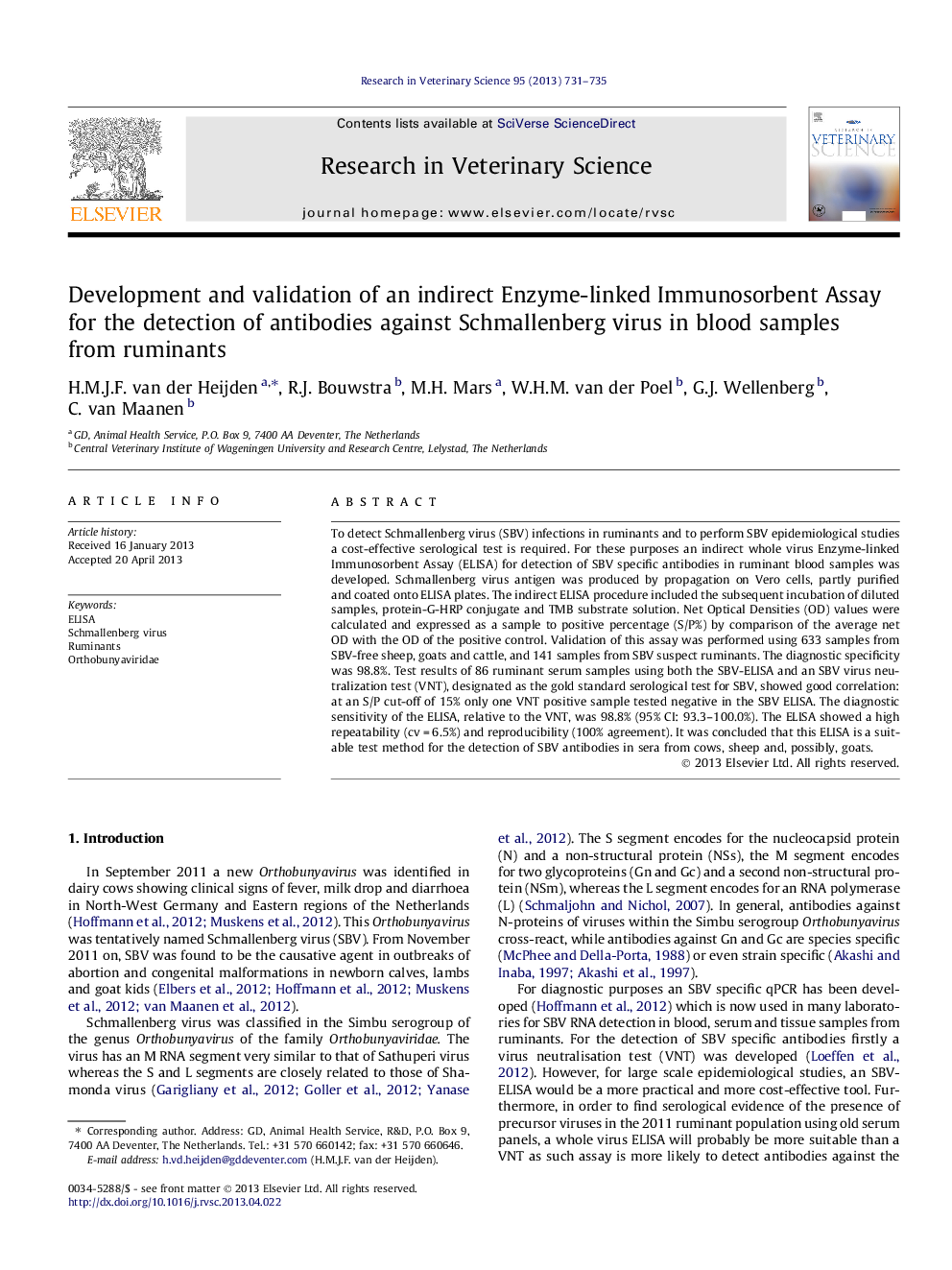| Article ID | Journal | Published Year | Pages | File Type |
|---|---|---|---|---|
| 2455142 | Research in Veterinary Science | 2013 | 5 Pages |
To detect Schmallenberg virus (SBV) infections in ruminants and to perform SBV epidemiological studies a cost-effective serological test is required. For these purposes an indirect whole virus Enzyme-linked Immunosorbent Assay (ELISA) for detection of SBV specific antibodies in ruminant blood samples was developed. Schmallenberg virus antigen was produced by propagation on Vero cells, partly purified and coated onto ELISA plates. The indirect ELISA procedure included the subsequent incubation of diluted samples, protein-G-HRP conjugate and TMB substrate solution. Net Optical Densities (OD) values were calculated and expressed as a sample to positive percentage (S/P%) by comparison of the average net OD with the OD of the positive control. Validation of this assay was performed using 633 samples from SBV-free sheep, goats and cattle, and 141 samples from SBV suspect ruminants. The diagnostic specificity was 98.8%. Test results of 86 ruminant serum samples using both the SBV-ELISA and an SBV virus neutralization test (VNT), designated as the gold standard serological test for SBV, showed good correlation: at an S/P cut-off of 15% only one VNT positive sample tested negative in the SBV ELISA. The diagnostic sensitivity of the ELISA, relative to the VNT, was 98.8% (95% CI: 93.3–100.0%). The ELISA showed a high repeatability (cv = 6.5%) and reproducibility (100% agreement). It was concluded that this ELISA is a suitable test method for the detection of SBV antibodies in sera from cows, sheep and, possibly, goats.
